IMO Launches History Book
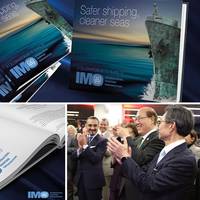
A book detailing the history of the IMO has been published to mark 75 years since the adoption of the IMO Convention, creating for the first time a global body to promote the safety and security of shipping and the protection of the marine environment.The IMO Convention entered into force in 1958 and the new Organization met for the first time the following year. The IMO's first task was to adopt a new version of the International Convention for the Safety of Life at Sea (SOLAS).“Safer shipping…
Data Collaboration Demands ‘Systemic Shift’ in Shipping
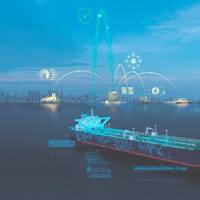
Shipping’s journey of digital transformation is as much about cultural change - from the boardroom to onboard vessels - to adapt to new ways of working with data collaboration at the core as it is about technology adoption, according to a new Bureau Veritas-backed research study.Digital transformation of the industry “demands a systemic shift in how we work together,” Bureau Veritas Marine & Offshore’s VP Digital Solutions & Transformation, Laurent Hentges, said in the foreword to the report by research firm Thetius…
Study Calls for 'Liberation of Data' in Shipping Shift for Decarbonization
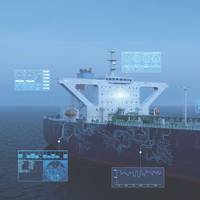
Siloed data systems represent a “recipe for duplicative and multiplicative cost inside a company and across companies”, an OrbitMI-hosted panel at the recent Shipping Insight event in the US was told, as a Bureau Veritas-backed study highlighted this as a big barrier to data collaboration for digitalization of shipping to cut emissions.Vast amounts of data are generated from ship operations - such as from sensors onboard or vessel performance management systems - as well as from…
Digitalization: Maritime Charts its Course
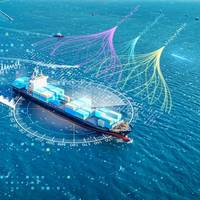
Maritime players plotting pathways to data collaboration with digital projects in line with new BV-backed research study.Digital technologies are increasingly being leveraged by shipping players to facilitate data collaboration among different actors in areas like ship design, vessel performance and port calls as a new Thetius research study backed by Bureau Veritas (BV) shows this will be vital to drive decarbonization, an OrbitMI-hosted panel heard at the recent Shipping Insight event in the US.“Data-powered…
Hydrogen as Fuel: Possibilities, But…
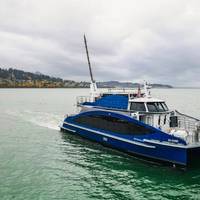
Hydrogen is everywhere. You know that from high school chemistry. And you also know it from Marine News’ almost daily updates about H powered vessel projects around the world.As a fuel that could potentially replace fossil fuels, H is in the spotlight. Perhaps the brightest spotlight, at least in the U.S., is within the Department of Energy’s “Energy Earthshots” initiative.R&D on H was the first such Earthshot announced last year. DOE wants the “Hydrogen Shot” program to “accelerate…
Fishing Boat Design: New Crab Boat from Gaspé Yard
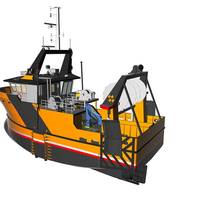
With the regulated catch quotas of contemporary fisheries, design versatility for a fishing boat can be important. A new 19.8 x 7.3-m (65 x 24-ft.) combination crab trap and groundfish trawler designed by NAVANEX for building by Chantier Naval Forillon, both of Gaspé, Quebec, Canada is a fine example of this. Owners, Listuguj Mi’gmaq Government, anticipate accepting delivery in April of 2022.The steel-hulled vessel will have a raised fo’c’sle design with an aluminum pilot house. When crab fishing, the clear, aft deck will be capable of carrying up to 150 collapsible, 100-pound crab pots.
DNV Report Says Maritime Energy Transition is Gaining Speed
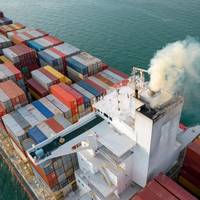
More than 1000 ships are expected to be ordered per year through 2030, and with growing pressure on the shipping industry to decarbonize, the shipowners must be careful with fuel selection and ship design, as a misstep here can have damaging consequences in the future.This is according to the latest Maritime Forecast to 2050 launched Tuesday by DNV.DNV stressed that shipping decarbonization was no longer just a top priority for the International Maritime Organization (IMO), but for the regional and national legislators…
MarTID 2019 Report Released
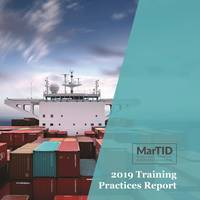
The second report from the historic MarTID survey initiative to study global maritime training practices, investment and thought is now available on the MarTID website. The findings include the following: expenditure on maritime training continues to rise for vessel owners and seafarers; new safety and environmental regulations are driving seafarers training trends; and the prospect of ship autonomy is entering the discussions on future seafarer training.Dr. Cleopatra Doumbia-Henry…
Maritime Industry Training Expenditure Up
The expenditure on maritime industry training continues to rise for vessel owners and seafarers, said asurvey.According to MarTID survey, new safety and environmental regulations are driving seafarers training trends. The study of global maritime training practices, investment and thought, also revealed that the prospect of ship autonomy is entering the discussions on future seafarer training.Dr. Cleopatra Doumbia-Henry, President of the World Maritime University, welcomed the report stating: “For all stakeholders involved in the maritime industry, especially those who manage, deliver and/or assess the training of seafarers, as well as those who benefit from the competency and optimum performance of seafarers…
New Book Targets Better Ship Design
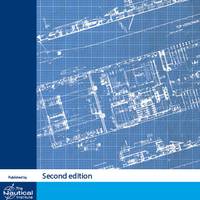
Bad ship design can make life onboard difficult and uncomfortable, cause accidents and even kill. Naval architects have a huge responsibility, but few of them have direct experience of how their designs affect those who use them. Improving Ship Operational Design, published by The Nautical Institute, hopes to make maritime operations safer and more effective by giving ship designers an insight into how those onboard work and live. The book was launched at the Royal Institution of Naval Architects’ (RINA) conference…
Navigation Accidents and Causes
The Nautical Institute’s latest book looks at major casualties and the lessons that can be learned, setting out good practice to avoid them in future. The book, launched yesterday (Monday), examines nearly 30 casualties and the problems of fatigue, bridge resource management, Colregs and other issues where human factors contributed to the accidents. In his Foreword to the book, Koji Sekimizu, Secretary-General, International Maritime Organization, said: “This timely publication from The Nautical Institute should provide a crucial guide for every mariner serving at sea and serve to assist in reducing collisions and groundings. “The publication is written in maritime English for international mariners.
LR Alert: Changes to the ISM Code
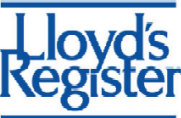
Note: this amendment means that compliance with minimum safe manning may not be sufficient when taking into account the operational requirements of the ship. It complements Regulation 2.7 of the Maritime Labour Convention, 2006, which also requires that all operational aspects are taken into account when reviewing manning levels. This reinforces the requirement for companies to verify that all personnel carrying out ISM-related tasks are doing so in accordance with the requirements of the code. Companies are reminded that this applies equally to their own staff and sub-contractors.
Maritime Security handbook: Stowaways by Sea
Improvements in security have not reduced the number of stowaways or the number of incidents and it is seafarers who have to cope with the extra work, delay, uncertainty and possible violence. This is why The Nautical Institute has today (Wednesday, April 9, 2014) launched Maritime Security handbook: stowaways by sea, aimed at helping people who have to deal with stowaways by giving advice on the preparation and training that is needed both onboard and ashore. The handbook gives practical guidance on making a vessel secure against stowaways, managing any that have succeeded in getting onboard, collecting the necessary evidence and organising the repatriation process.
Maritime Anti-Piracy, The Captain’s Guide Book
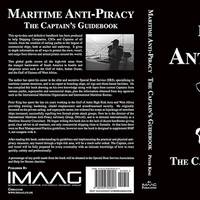
The fight against global piracy is as old as the seas themselves. Recent years have seen huge increases in pirate attacks against commercial shipping and, while the risk of piracy off East Africa is now believed to be somewhat diminished, the threat remains in the region and the cost to the global economy has been estimated to be as much as $6 billion by Oceans Beyond Piracy in their 2012 report. Piracy in West Africa and the South China Sea, meanwhile, is very much on the increase.
'Rule of the Road' Bridge Prompts
North P&I Club publish a new loss prevention guide for watchkeepers on how to avoid collisions at sea. Designed specifically for use on ship's bridges, the guide focuses on what the Club considers to be the most important ‘rules of the road' in the International Regulations for Preventing Collisions at Sea 1972 (COLREGS). In his foreword to Collisions: How to Avoid Them, the Hon Mr Justice Nigel Teare, Admiralty Judge at the Royal Courts of Justice in London, says, ‘Despite all the impressive electronic assistance designed to enable deck officers to avoid collisions, collisions still occur. The answer is, and always has been since radar was first introduced, that the rules of navigation set out in the COLREGS must still be applied by deck officers.
North P&I Club Publishes New Bridge Guide
The ‘A’ rated 170 million GT North P&I club has just published a new loss-prevention guide for watchkeepers on how to avoid collisions at sea. Designed specifically for use on ship’s bridges, it focuses on what the club considers to be the most important ‘rules of the road’ in the International Regulations for Prevention Collisions at Sea 1972 (COLREGS). In his foreword to Collisions: How to Avoid Them, the Hon Mr Justice Nigel Teare, Admiralty Judge at the Royal Courts of Justice in London, says, ‘Despite all the impressive electronic assistance designed to enable deck officers to avoid collisions, collisions still occur. The answer is, and always has been since radar was first introduced, that the rules of navigation set out in the COLREGS must still be applied by deck officers.
Ignore the Bluster – Wind Farm Power is Effective
A UK Institute for Public Policy Research (IPPR) research paper dismisses illusions about wind power as an energy resource. Much opposition to wind power appears to be based on the belief that it is an ineffective technology, inefficient or unreliable. This claim is untrue and it is important to get ‘beyond the bluster’ in assessing the effectiveness of wind power. • Is wind power an effective way of reducing carbon emissions? • Is wind power a secure and reliable source of energy for the UK? It shows unequivocally that wind power can significantly reduce carbon emissions, is reliable, poses no threat to energy security, and is technically capable of providing a significant proportion of the UK’s electricity supply with minimal impact on the existing operation of the grid.
Ship Casualty Management Guidelines Book Published
The Nautical Institute and the International Salvage Union (ISU) have launched 'Casualty Management Guidelines', a book aimed at providing practical guidelines to help seafarers during a casualty, when demands can be confusing, contradictory, unclear or a combination of all three. In the book masters and crew members are told what to expect from people or organisations that might be involved as the casualty unfolds. Chapters are presented, describing how masters should expect to deal with different people, from owners to government officials, insurance representatives and salvage experts. It will give all involved an idea of the job each may be undertaking, together with priorities and responsibilities.
The Art of Seafarer Competency
The first International Convention on Standards of Training, Certification and Watchkeeping for Seafarers (STCW Convention) was adopted in 1978. It proved to be largely toothless and vague to the point that it actually established no meaningful standards. While it was a first step, the 1978 Convention was not a good first step. After many years of effort, the Parties to the 1978 Convention met again in 1995 to overhaul the process. As noted in the Foreword to the publication of the results on the 1995 Conference: “Complete revision to the annex to the 1978 STCW Convention became necessary in order to clarify the standards of competence required…
StatoilHydro Annual & Sustainability Reports
"StatoilHydro's results and deliveries in 2008 were strong, and we are well positioned to steer through the current economic downturn. Good exploration results and targeted business development strengthen our resource base and underpin our long-term growth strategy," wrote chief executive Helge Lund in the foreword to the annual and sustainability reports 2008. For the first time, the annual and sustainability reports have only been published online, without an equivalent printed version. Only the reporting required by laws and regulations will be printed and distributed to shareholders. StatoilHydro's operational performance in 2008 was solid and characterized by record equity production of oil and gas and the most expansive exploration program ever.
P&I Club Prints ‘Rules of the Road’ Guide
The North of England P&I club has published an authoritative illustrated guide to the main 'rules of the road' for shipping to help reduce the significant annual losses suffered by the industry due to collisions and other avoidable navigational errors. An international survey by the Nautical Institute last year* revealed nearly 50% of seagoing officers believe navigational errors are due to ignorance or disregard of the IMO International Regulations for Preventing Collisions at Sea, 1972 (Colregs). Institute president Captain Robbie Middleton has thus strongly supported the new publication, which he believes 'provides a valuable text to re-establish good practice'. The 30-page ring-bound booklet is based on the popular series of Colregs posters published by the North of England since 2001.
Energy Transport: The Boom Continues
With 21 percent of existing VLCCs and about 35 percent of both the Suezmax and Aframaxes fleets still on order, tanker owners may be starting to wonder how far today’s boom rates can last. However, according to the latest edition of BP’s stalwart Statistical Review of World Energy, now in its 53rd year, there will be hefty shipping requirements for a long time yet. Energy demand continues to rise – last year, primary consumption rose by 2.9%, as a result of the “global economic recovery and the ongoing boom in China”. China’s oil consumption rose to 5.38m b/d, up 11.5% from 5.03m b/d in 2003, accounting for about 40% of the total global increase.
USS Carl Vinson Steps the Mast in Solemn Ceremony
Invoking millennia of maritime and shipbuilding tradition, USS Carl Vinson (CVN 70), currently in drydock at Northrop Grumman Newport News shipyard, stepped its new mast March 6 in a solemn ceremony on the flight deck. The ceremony involved a series of remarks by distinguished guests and culminated in the welding of a commemorative metal plaque to the base of the ship’s new mast. Carl Vinson Commanding Officer Capt. Ted Carter led the ceremony, and introduced its distinguished participants during his opening remarks: Rear Adm. David Architzel, Program Executive Officer for Aircraft Carriers; Ken Mahler, vice president for carrier overhauls at Northrop Grumman Newport News; and retired Capt. Richard Martin, Carl Vinson’s first commanding officer. Rear Adm.





